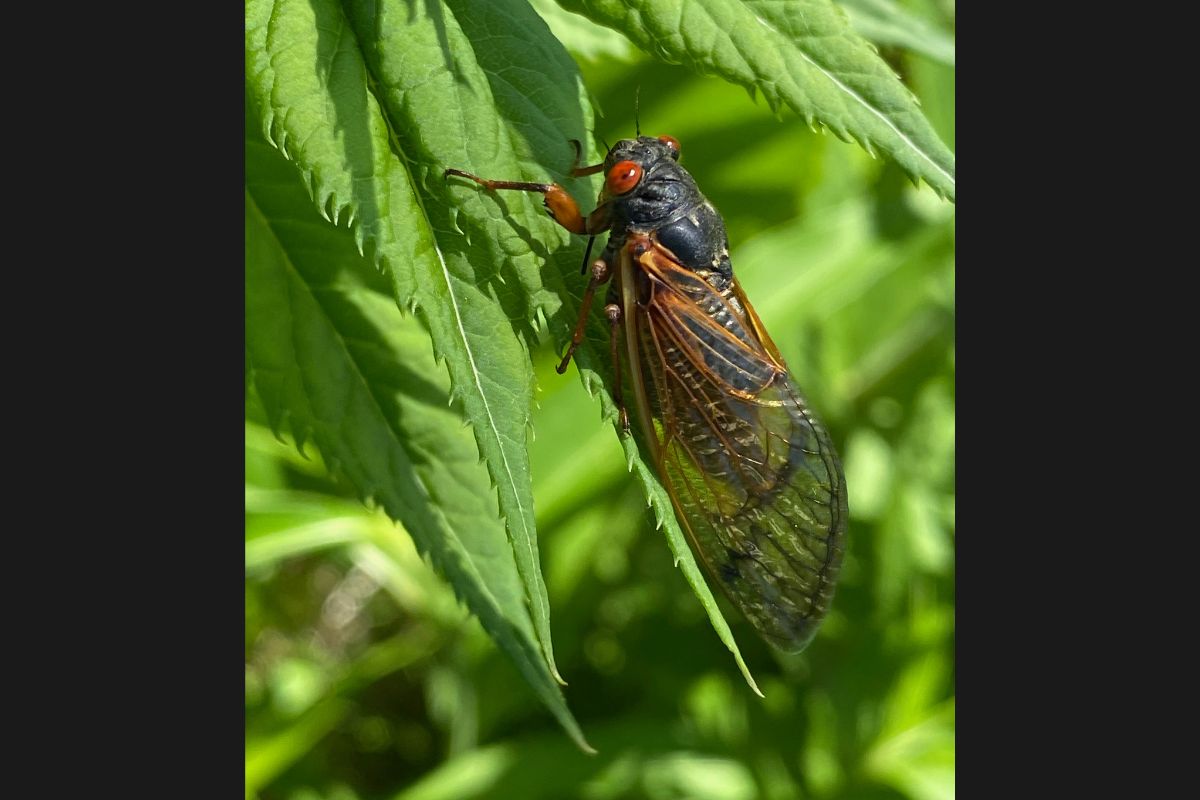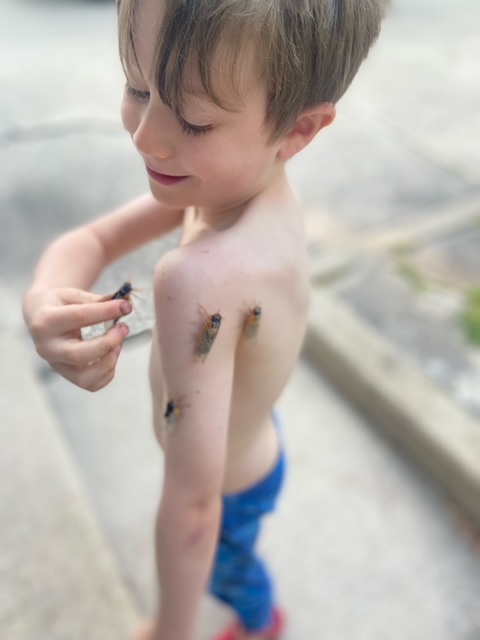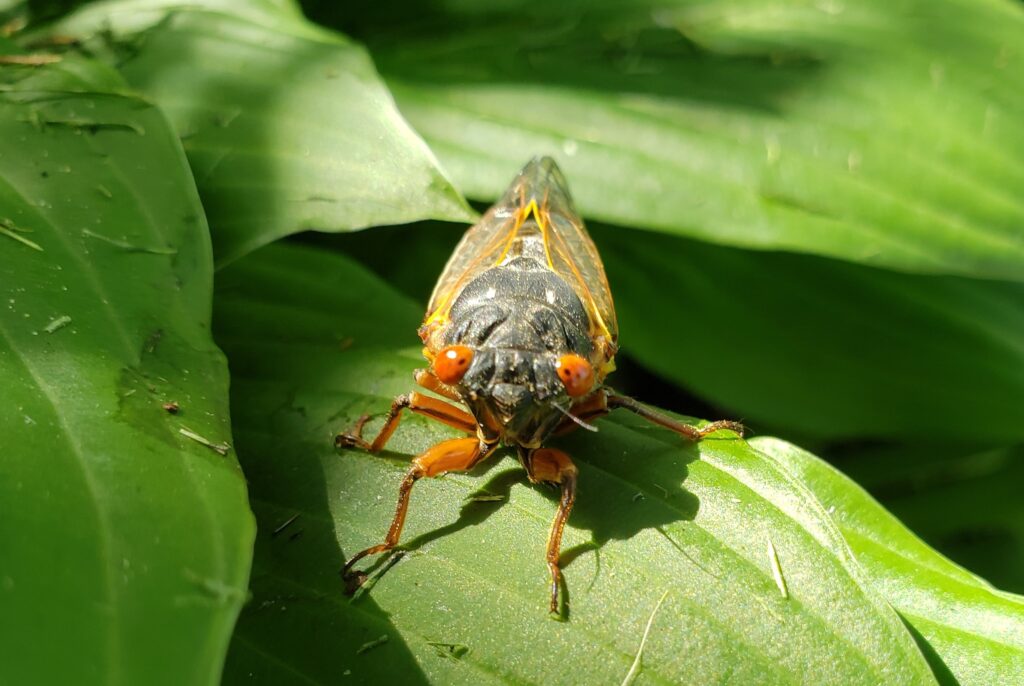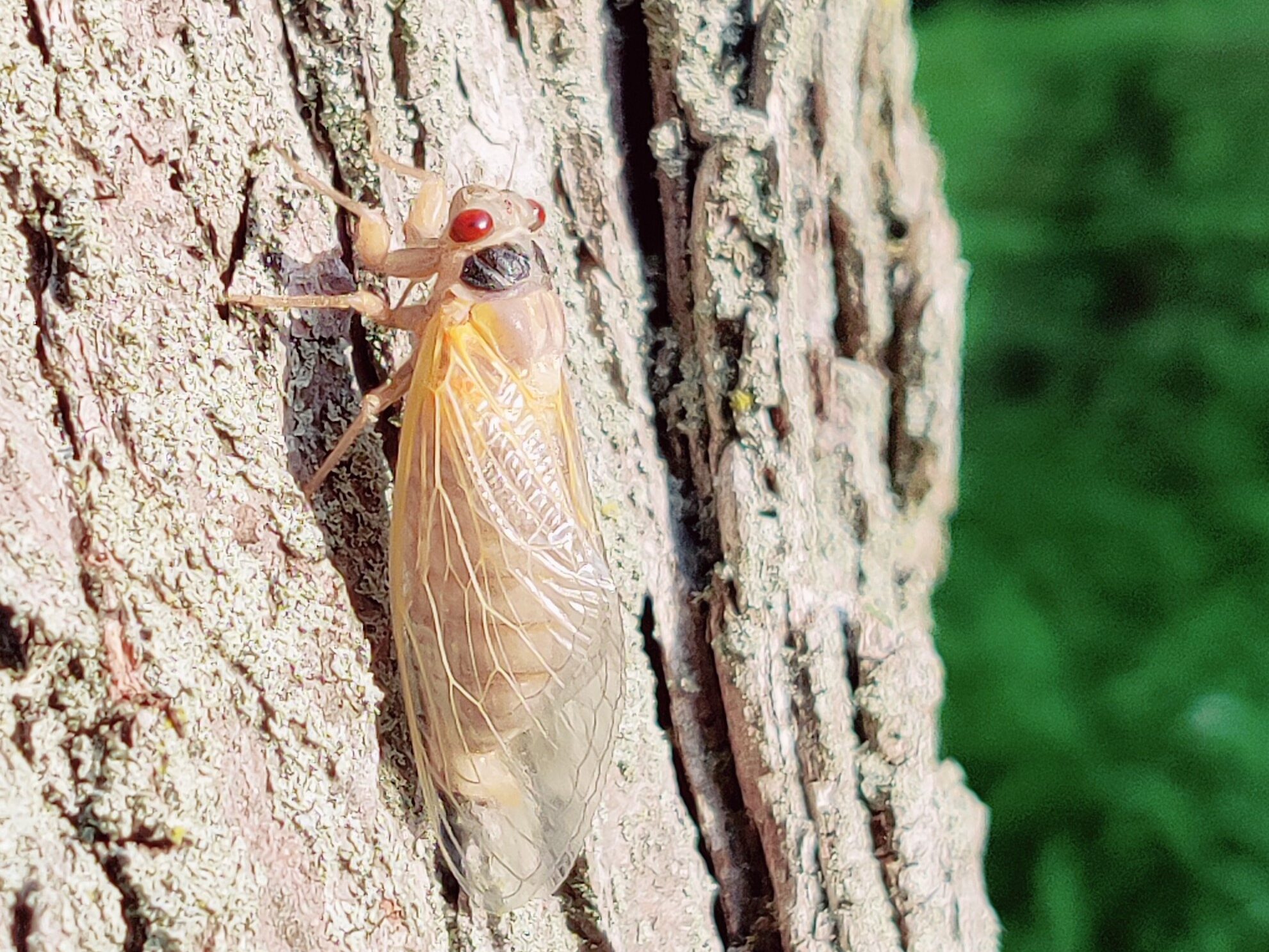
Cicada Mania: Historic cicada season brings buzz to the North Shore
This summer marks the first time in 221 years that Illinois is home to two different breeds of cicadas. The Brood XIII began emerging across the North Shore this month.
While there are annual cicadas, Brood XIII emerges every 17 years and Brood XIX every 13 years, with 2024 marking the rare overlap between the two. Illinois is one of the few states that is home to both broods.

These cicadas emerge from the ground as nymphs, identifiable by their brown shell, in May. They then hatch from their shell as adult cicadas. From there they will eat, mate, lay eggs and then die all within four to six weeks.
Cicadas begin mating within days of leaving their shells. Mating season is marked by the sounds of male cicadas calling the females. Their calls can reach 100 decibels and be as loud as a lawn mower. The loud sounds of the insects is their only nuisance to humans, experts say. They are otherwise harmless to humans and pets and are even edible.

While the XIII brood is expected to make its way back into the soil in late June, annual cicadas are expected to emerge around the same time and stay above ground until August to September.
Communities around the North Shore have been encouraged to enjoy this historical cicada season, and Highland Park is taking it a step further. The town’s Heller Nature Center will be hosting a Cicada Celebration on June 1.
Keeping your garden safe
Cicadas spend most of their time in bushes, shrubs and trees. Adult females tend to use woody plants to lay their eggs. In doing so, they will create a small slit up to 1/2 to 1 inch into the tree or branch. Healthy and more mature trees and shrubs can heal these slits easily, but smaller, younger trees may be damaged.
To keep small plants safe, a fine netting, like tulle, bird netting or insect netting can be secured around the plant starting at the base or trunk to prevent cicadas from crawling up. The best time to cover plants is during the egg laying period from the end of May to early June; however, most evergreen trees do not need protection as cicadas do not lay eggs in them.
Many villages have advised residents to avoid using pesticides to protect their gardens. According to Morton Arboretum, insecticides may kill adult cicadas but will not harm the eggs.

Additionally, broad-spectrum pesticides do not discriminate what they affect, meaning they can harm other animals and insects. Federal law states that the use of pesticides must be consistent with its label, and there are currently no pesticides available that are labeled to target cicadas.
Keeping your pets safe
Cicadas are harmless for pets, including when ingested; however, according to the American Kennel Club, eating too many could result in an upset stomach, vomiting and diarrhea.
“In most cases, your dog will be fine after eating a few cicadas,” said Dr. Jerry Klein, Chief Veterinary Officer for the AKC in an article. “However, dogs that gorge on the large, crunchy insects will find the exoskeleton difficult to digest and can suffer serious consequences.”

They recommend teaching your dog the “leave it” command, to keep them from eating them while on walks.
For additional information, you can find cicada pages at The University of Illinois, Morton Arboretum, or The Chicago Botanic Garden.
The Record is a nonprofit, nonpartisan community newsroom that relies on reader support to fuel its independent local journalism.
Become a member of The Record to fund responsible news coverage for your community.
Already a member? You can make a tax-deductible donation at any time.

Cleo Pool
Cleo Saliano Pool is the 2024 Record Intern and an incoming senior at American University, studying journalism and graphic design. She recently worked for the Investigative Reporting Workshop, where she developed her passion for nonprofit news. Born and raised in Wilmette, Cleo loves reporting local news and connecting with her community.


